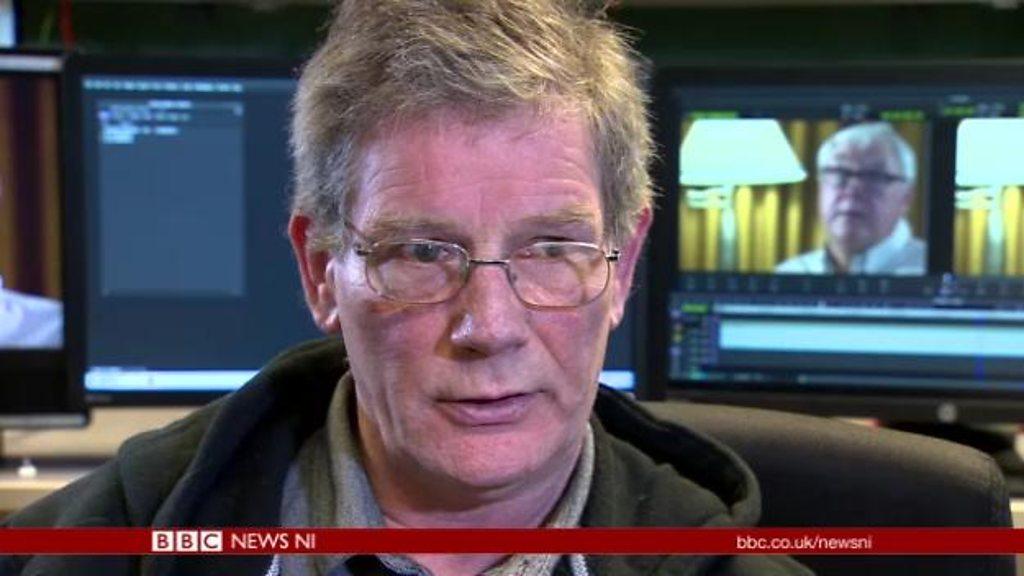Child sex abuser Henry Clarke tracked down to Canada
- Published
Henry Clarke said he abused a young boy after he 'saw an opportunity and took it'
A serial child sex abuser who admitted his crimes to police has never been brought to justice.
Henry Clarke, 75, confessed to abusing three different boys at care homes in Northern Ireland.
A retired church pastor, he has been living in Canada since he made the admissions in 1985.
At the time, the director of public prosecutions ordered no prosecution, and police failed to act on a further confession.
The Canadian authorities were never informed.
BBC News NI made a 4,000 mile journey to track Henry Clarke down to where he now lives, in a small northern Canadian town hundreds of miles from the nearest city.
The serial paedophile admitted his crimes to police in 1985, but has never been brought to justice.
When questioned, he admitted he had abused three boys in his care in Northern Ireland in the late 60s and early 70s.
"At that time, I would not have used the word paedophile because I would never (have) thought of it, but subsequently as years have gone on, I realised that is the proper word for what I had done," he said.
"Always in the back of my mind I knew what I was doing was wrong."
Four different churches
One of his victims, Billy Brown, who was abused when he was 12, described Henry Clarke as "a monster".
Billy Brown, who was abused by Henry Clarke, says he was a 'monster'
Mr Brown, who has waived his right to anonymity, said: "You just had to stay away from him.
"You went to bed at night, you pulled your blankets around you as tightly as you could."
After emigrating in the late 70s, Henry Clarke went on to train as a pastor and worked at four different churches across Canada.
He eventually admitted the accusations of abuse during an interview with police in Belfast in 1985 and, afterwards, in a letter he wrote from Canada.
Clarke told the Royal Ulster Constabulary (RUC) he had abused two boys, Billy Brown at Bawnmore House care home in Newtownabbey, and another boy at Firmount Hostel in Antrim.
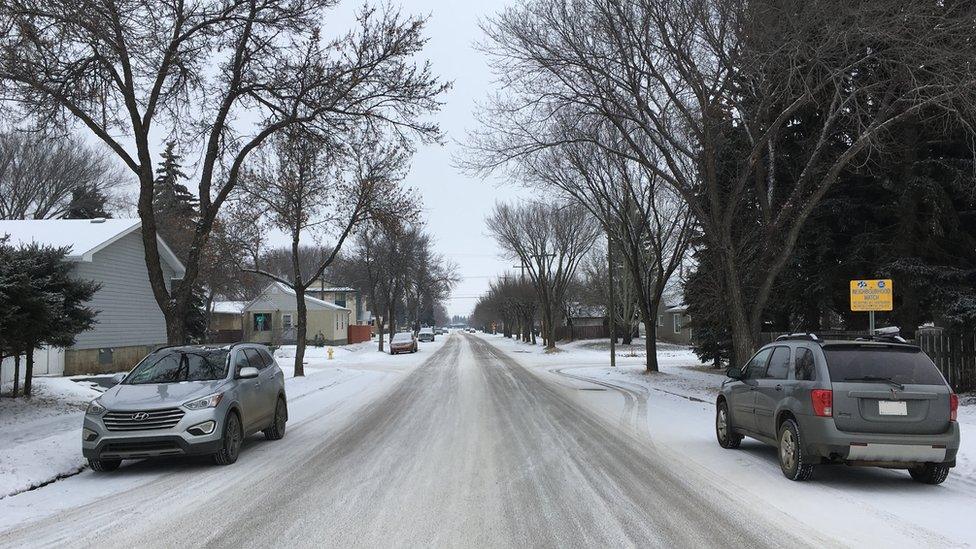
Henry Clarke worked as a pastor at four different Canadian churches
"I realised at that time that my behaviour was wrong and there were consequences," he said.
"And I believe that, in my mind... that I would probably finish up going to prison or something of that nature but there would be consequences."
But nothing happened.
'I wanted to deal with everything'
He was allowed to return to Canada, and from there he wrote a letter to the RUC confessing to the abuse of another boy, this time from Conway House children's home, while he was at a Boys' Brigade camp in Newcastle.
"When I was in Northern Ireland, I omitted to mention a boy I had interfered with sexually and, I wanted to deal with everything, and so I wrote to them and admitted that there was another boy that I had missed, or omitted telling them about, and asked them to take that into consideration," he said.
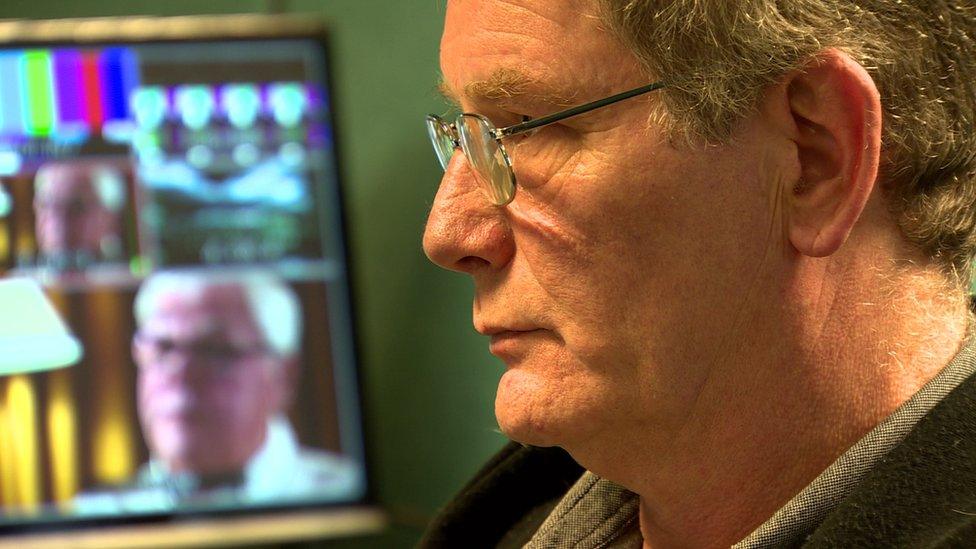
Billy Brown was abused by Henry Clarke when he was 12 years-old
In his letter of confession, Henry Clarke asked the RUC if they would be informing the Canadian authorities about his past.
He says they wrote back to tell him they would not, and the Royal Canadian Mounted Police were never told about the admissions.
In the early 80s he again worked with young children when he set up a home for boys in Kenora, Ontario.
The charity which ran the home, the Scott Mission in Toronto, said it was unaware of allegations of sexual abuse against Henry Clarke.
'I knew what I was doing was wrong'
While in Canada, he and his wife also adopted a 13-year-old boy.
Asked if he thought he would have been allowed to adopt a child if the Canadian authorities had been told about his confessions to the RUC, he said: "Probably not."
While denying he ever abused anyone other than the three boys, he said he did not put himself in any situations that might have presented opportunities for him to abuse.
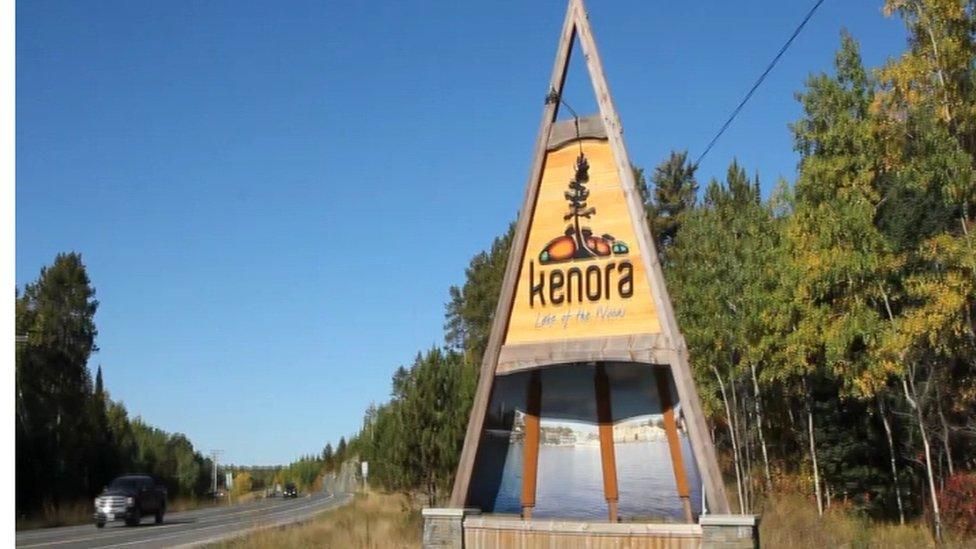
Henry Clarke ran a children's home
"I recognise within myself that there is something there that is part of who I am and I would not, in any circumstances, put myself in a situation where I would be alone with children," he said.
"There's probably those feelings within me, yes, but there is a difference between feelings and acting and I am not acting out, in any way, those feelings, I deal with them and I know right from wrong."
"I think always in the back of my mind I knew what I was doing was wrong," he said. "But it was one of those situations where the opportunity comes along and I stepped into wrong behaviour."
Henry Clarke's confessions first came to light at the Historical Institutional Abuse (HIA) inquiry, which reported earlier this year.
His identity had been protected by the inquiry's offer of blanket anonymity but that ruling was successfully challenged by BBC News NI.
- Published5 April 2017
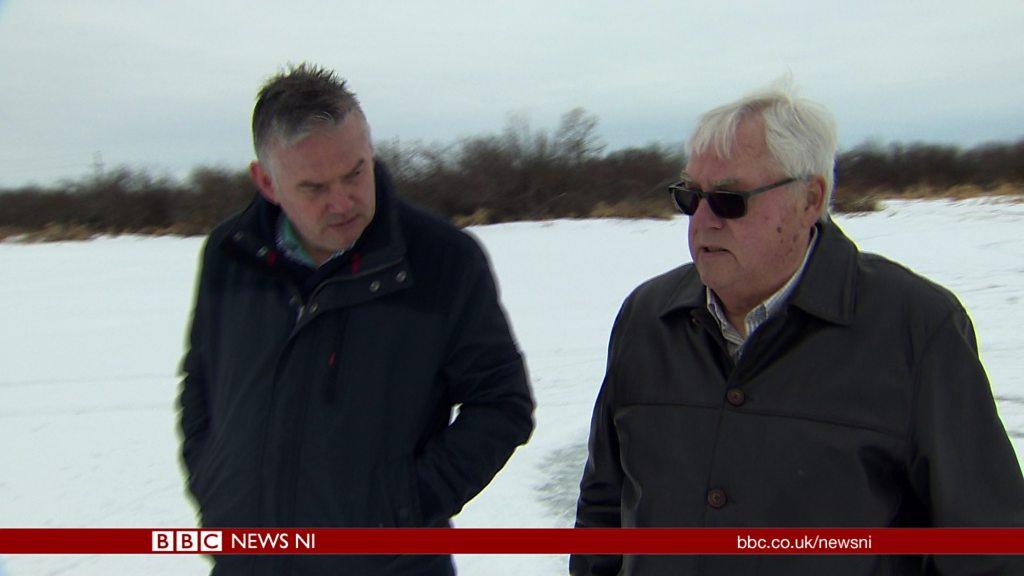
- Published5 April 2017
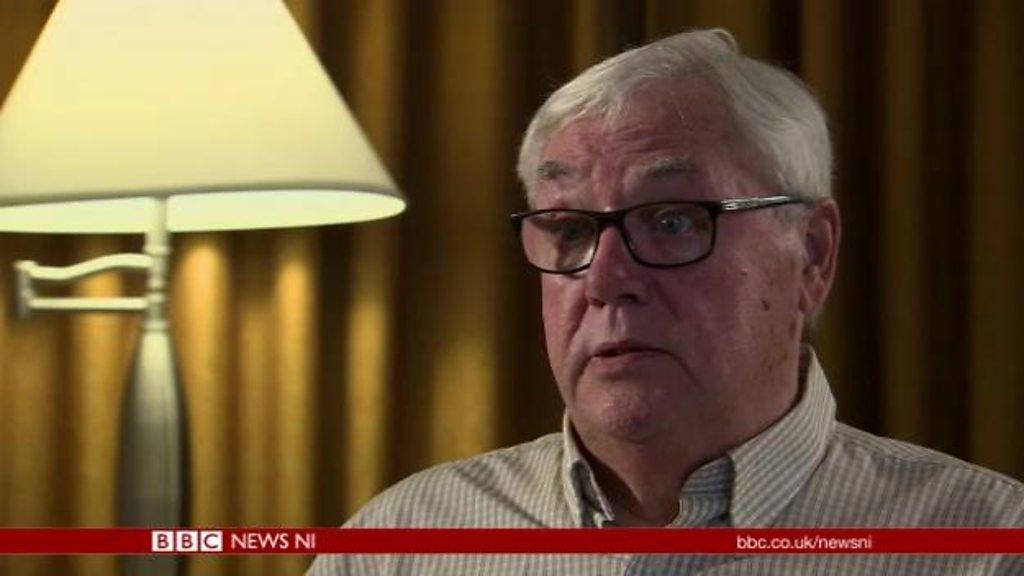
- Published5 April 2017
